Would You Pick the Crazy Pup?
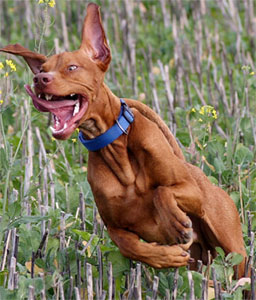 I (Jay) am as expert about dogs as I am about astrophysics – which is to say, I don’t know much. But I’m learning as fast as I can. And since I’m in the market for a dog – or dogs plural if my kids have their way – I’ve read a bunch about the first step: finding a pup.
I (Jay) am as expert about dogs as I am about astrophysics – which is to say, I don’t know much. But I’m learning as fast as I can. And since I’m in the market for a dog – or dogs plural if my kids have their way – I’ve read a bunch about the first step: finding a pup.
Including a recent article in the Memphis, TN Commercial Appeal newspaper about a guy wo’s into the Field Trialing Bird Dogs scene. Below are some highlights – would you pick that dog?
> For retired Naval officer Garett E. Lockee, it’s hard to explain the process he uses for selecting a dog that might someday make a run at the National Championship for Field Trialing Bird Dogs. So he sums it up like this: “I want a dog that’s almost crazy.”
> “All season long, during what most folks call the regular season of field trialing, dogs only run for an hour at a time. Then when they get to this national championship…they have to run for three hours. They need something extra.” In Lockee’s mind, a dog that’s a little crazy during a one-hour run should have energy in reserve for the three-hour run at Ames.
> “I want that dog that covers lots of ground. I want that dog that’s almost always right on the verge of being lost. Almost, but not quite.”
> There are certain factors that all field trial enthusiasts look for when they’re choosing a dog. They need good genetics — and they want proof of those genetics in writing. Many want a young pup that is healthy, feisty and domineering before he’s ever removed from the rest of the litter. Others want the dog to have a certain X-factor…. Lockee’s “almost crazy” syndrome is an example of an X-factor.
> Rick Smith’s “physical freakiness” is another [X-factor]. “I want a dog to be the physical freak of the bunch,” said Smith, whose entire Virginia-based family is famous for breeding and training field trial champions. “If you were scanning a group of high school athletes, looking for a linebacker, you’d want a physical freak — one who could do stuff the others just couldn’t. That’s what I want out of a national championship dog.”
[This next part is interesting.]
> Smith said those dogs are the ones that seem to make birds appear from thin air. “If you get the athletic dog that can do the work and cover the ground, all the stars just seem to line up for that dog,” Smith said. “From their very first season, they just stumble into birds. And from there, it’s like they manufacture birds.”
Well?
Since the dog(s) I get will have to double as family dogs, not sure if the X-factor freaks are in the cards, even if the breeder didn’t already cull that pup from the litter.
What factors do you look for in a pup, if any? How do you choose? If nothing else, help educate me fellas!
Category: Dogs in general





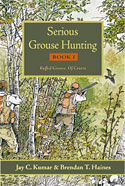
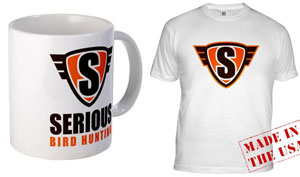
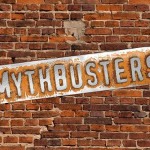
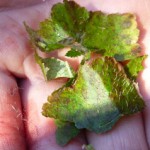
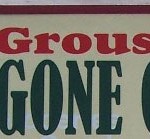
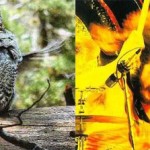
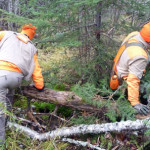
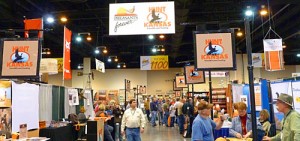
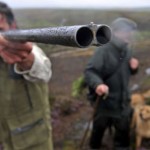
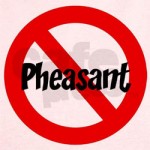
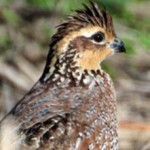
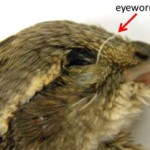

I look for a pup that is somewhere in the middle of the pack. I don’t want the soft pup, likely to crumble under a little pressure or suffer a setback should I make a mistake in training. I also don’t want the super assertive pup which could turn out to have too much of it’s own head. While a trialer wants their dog to run just this side of out of control, I want a biddable pup, exuberant about finding birds, but eager to please me.
Unless you have the time to walk that “almost crazy” dog EVERY single day for at LEAST an hour off lead, you will go deffinatley insane living with that dog, particularly if it is going to be living in your home. And it’s not fair to the dog.
Read some of what the old timers said, it may not be a field trial dog you want for hunting grouse. I like dogs that pace themeselves and can hunt an eight hour day. A good grouse dog need brains maybe more than muscle, we’re not hunting planted quail in some field trial. We’re hunting the wildest bird of them all.
The best two dogs I ever owned for grouse could best be described as methodical, not rocket dogs. They’d hunt for eight hours and then be ready to go again the next moring. And we found lots of birds.
And nothing beats exposure to birds for training. It’s as important to find a way to keep birds in front of your dog as it is to find the right dog. You can’t learn if there’s nothing to teach you. I’ve kept both quail and pigeons and wouldn’t be without one or the other always around. We are lucky and can train right out behind our home.
Of course, once you get a dog, you may love the whole field trailing thing enough that it will become a passion in itself. In that case, disregard my comments and enjoy the experience. Hunting and dogs isn’t a competative sport to me, rather a contemplative experience, so I’ve chosen to stay away from that sort of thing.
Whoa Boy ! Here we go. This is going to be a long post.
First thing I ask people when they want to buy a dog is what kind of hunting do you do and what is your hunting style? I breed German Shorthaired Pointers, I don’t recommend the breed to everyone. There are people that want foot hunting dogs and there are people that want field trial dogs. Two different things. Ask yourself the question what kind of dog would fit my hunting style and family. Then pick the breed. Do your homework.
Ok you have picked the breed, now you need to find a breeder. This IS the most important step in picking a good dog. A good breeder will have the bitch, possibly the stud. Be willing and able to show the dog in the field. Be frank and honest about the pedigree and lineage of the pups. He will also be able to tell you about the strengths and weakness of his puppies. I give references to all prospective customers. If you get to the point that you’re are interested, call the references. Check on the pups from previous litters. Ask Questions. Do your homework.
OK, Breed & Breeder chosen. Which pup do I pick from a litter? Spend time with the pups, look at intelligence, pack ranking (most aggressive to most timid) and personality. Take some time to discuss with the breeder what you are looking for in a pup and ask for a recomendation as to what the breeder thinks would be a good match. Remember, you don’t have to take the breeder’s recommendation. Play with the dogs and see which dog fits your expectations. Pick that dog. If you want an alll around good dog take the middle ground, if you want a field trial dog take the psycho pup, if you want a docile pet that occasionally hunts, take the most timid. Good breeding insures that the software comes preloaded in the hardware. Getting the pup to a level of competency in the field is another matter. The psycho pup can be a real handful around the house and will require a more disciplined training approach, the most timid dog in the litter could be great around the home and a require a slower and more supportive training regimen in the field.
What do I look for ? Intelligence,curiosity,independance and personality match. Sounds easy? I have been raising and breeding hunting dogs for the better part of 20 years. It still can be a crapshoot. If you do your homework and get a good breeder 80% of your work is done for you.
I want a dog that is smart, has a superior nose, is well socialized (with litter mates and with people) and one that comes from proven field trial stock. I want a dog that covers the ground, learns where grouse like to hang around and doesn’t waste time in areas they are not likely to be. I want a dog that goes into the cover without me following behind him. I want a dog that is bold enough to seek his objectives as far out as is necessary without loosing track of where I am. That’s right, I want a dog that doesn’t want to loose track of where I am and If he does, then he has enough sense to backtrack to pickup my trail sent. I want a dog that has a smooth stride. This allows him to run fast ( cover more area) and run long ( all day ).. One more thing, I want a dog that is classy – tail high and moving.
The primary way you determine this is by observing the parents or at least look at their record. Yes, I’m talking about field trial dogs that run in grouse woods or in walking trials.
You might be able to detect slight differences in the litter by observing their social behavior or scattering a few treats on the ground and see who finds most of them. But unless you can spend a few days watching them you puppy selection methods probably aren’t much better than selecting the first one that comes to to greet you.
We hunt large complexes of medium to low density areas. We use Garmin Astros to track our dogs. At the end of the day the dogs cover a huge amount of ground in comparison to what we walked. When I hunt with just my dog and no one else I don’t talk or ‘Sing’ to him.. He gets about 225 – 250 yards out and seems to know where I am without seeing me. If I change directions he comes around without me calling him. I tend to believe that he can hear me walking though the brush up to those distances. If I go silent (hide) he backtracks, picks up my trail and finds me. He does all of this because we have REALLY bonded well.
His nose allows him to locate grouse 30 to 40 yards out. Last December he point a grouse in a pine tree that was growing in a ravine. He was standing on point, looking out across the ravine when the grouse flushed out o the tree about level to him at the 40 yard range.
He runs big and runs all day ( we hunt him almost all year round including woodcock banding in the Spring). It is fun to watch him hit the objectives: edges, transition zones, islands, etc. He is the smartest dog I have ever owned. He comes out of Grouse Champion lines.
A fbig running dog requires that the dog be trained to near field trial standards and that the owner enforce those standards. Many hunters don’t spend the time to train their dogs to be steady or they send their dog to a trainer who gets the job done but then when they gety their dog back they don’t enforce it ( yes dogs will test you ) . If you can’t spend the time training a dog or keeping the dog trained then you need a dog that stays in close and is methodical (what else is he going to do if he has to stay within gun range).
As Sherry Ray Ebert says in her Training DVD: The difference between a well trained field trial dog and a well trained hunting dog is the number of birds taken